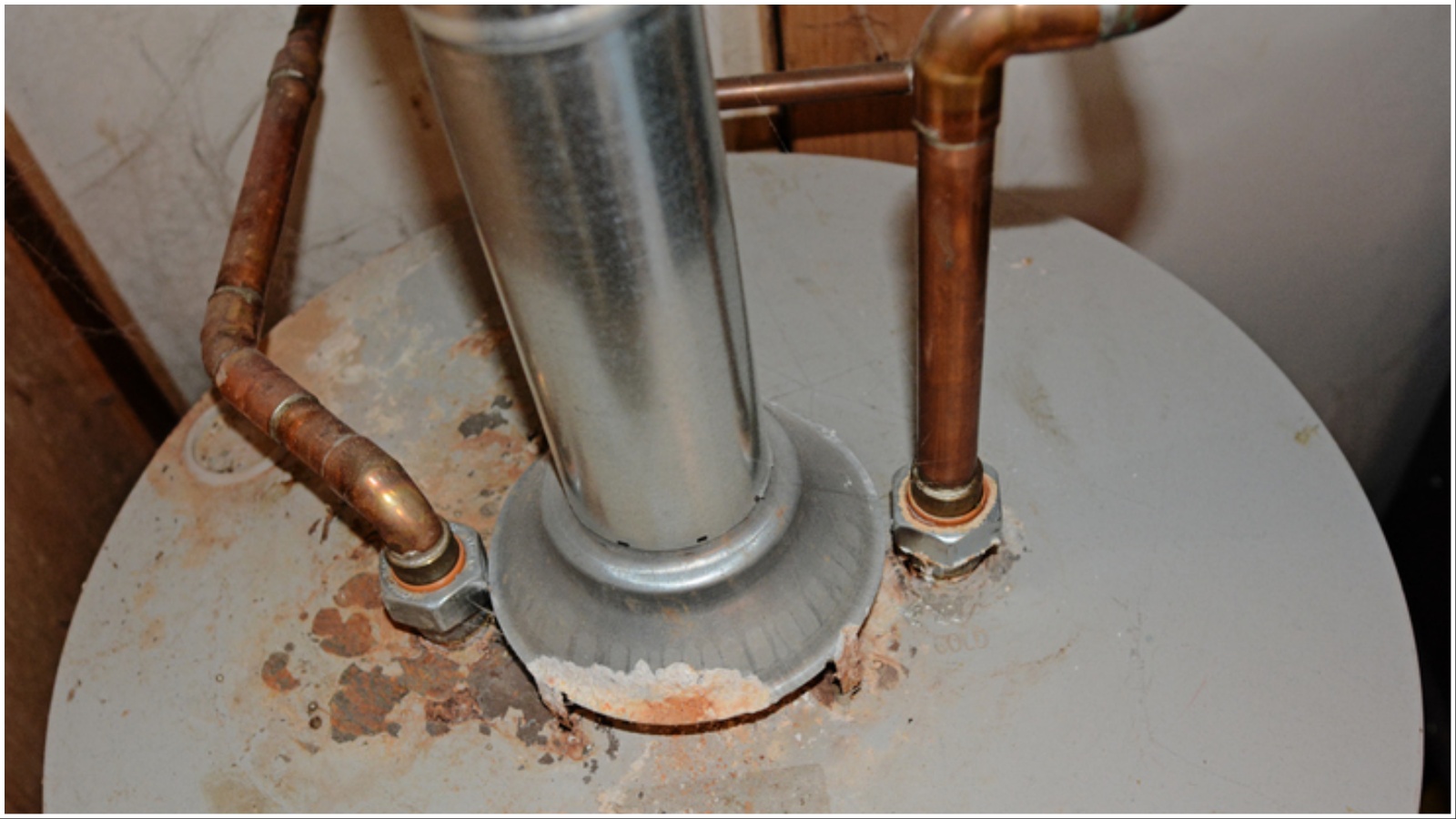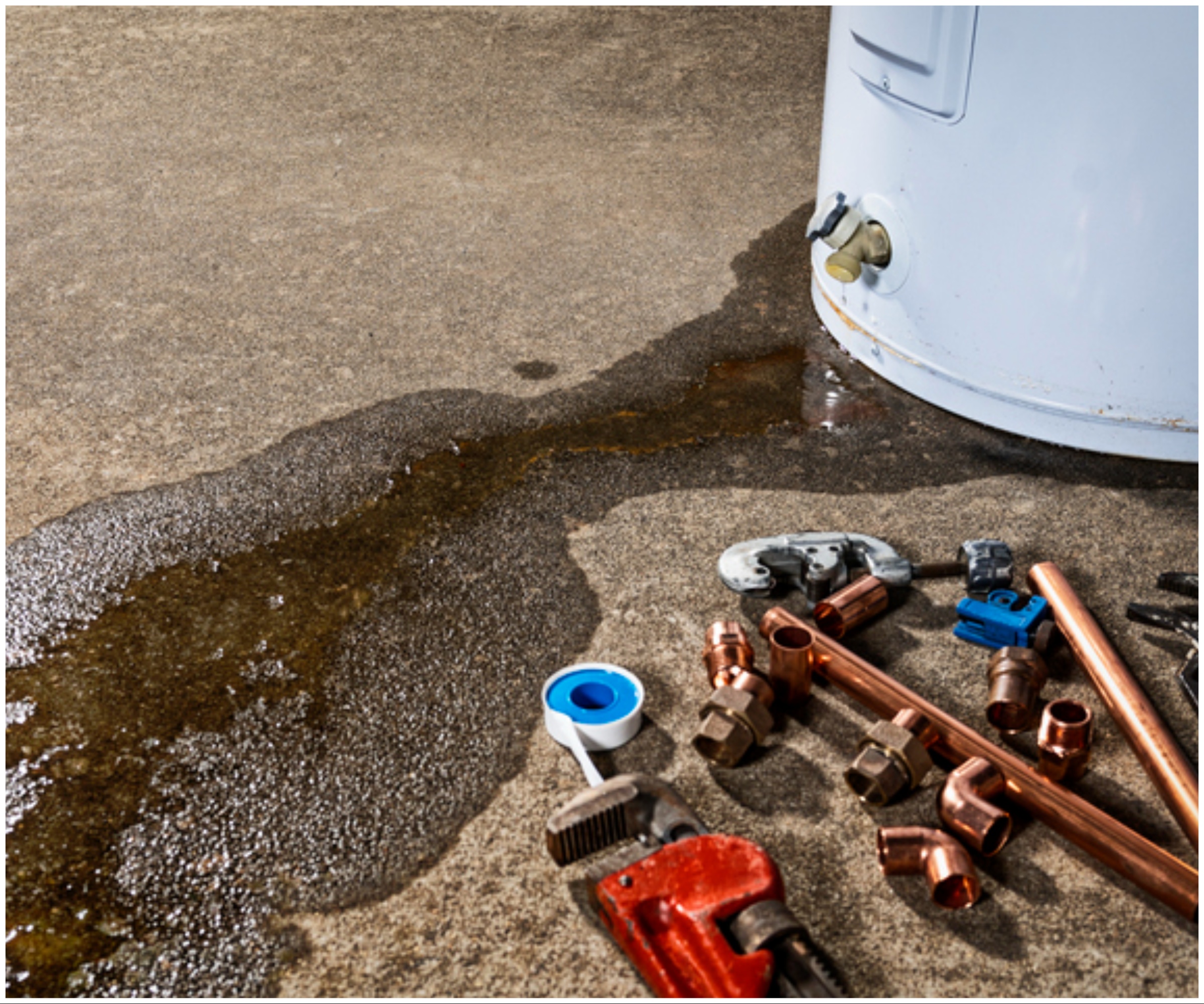
Bring your dream home to life with expert advice, how to guides and design inspiration. Sign up for our newsletter and get two free tickets to a Homebuilding & Renovating Show near you.
You are now subscribed
Your newsletter sign-up was successful
Gas, oil, and electric boilers may need replacing if they become inefficient and cause your energy bill to rise, need frequent costly repairs, or become obsolete because of advances in technology.
Another important factor to be aware of when considering boiler replacement is looming environmental legislation in the UK that could force homeowners to use alternatives to fossil fuel boilers, such as heat pumps. However, a new boiler is a significant investment, so it’s important to know when and if it is necessary to replace your boiler type.
We spoke to heating experts Hamid Salimi, product manager at Daikin, and Thomas Farquhar, co-founder and CCO of Heatio, to lay out the issues surrounding replacing your boiler so you can make an informed decision before investing.
Reasons to replace a boiler
Knowing when to replace a boiler can be tricky. By replacing it too soon, you may be getting rid of a perfectly good boiler that could have lasted another couple of years but leave it too late and you could end up with no heating, no hot water, and an expensive repair bill. Here are the reasons you may need to invest in a newer, more efficient boiler.
1. Older boilers can cause your energy bills to rise
The older boilers get, the less efficient and reliable they can become, so if you’ve noticed an increase in the cost of your gas bill, an old or faulty boiler may be the culprit. Thomas says a faltering boiler may use a lot of energy to heat your home to the temperature you require.
A newer model may need less gas to reach the same outcome, therefore saving you money. Thomas added: "Savings very much depend on what system you are replacing and whether you are combining it with other technologies."

Thomas has 15 years’ of experience in the renewable energy sector, with expertise covering consumer management, sales and proposition. Thomas founded Heatio alongside Simon Roberts and together, the team is on a mission to transform the way people consume and manage energy at home, while reducing their carbon footprint and saving costs, by creating smart, connected homes.
2. Frequent breakdowns can become common
Constant repairs can be costly, so it’s worth doing your sums to figure out if a new boiler could leave you better off in the long run. If you’re calling out a Gas Safe engineer more than once a year on top of your annual service, it’s probably time for a change.
Bring your dream home to life with expert advice, how to guides and design inspiration. Sign up for our newsletter and get two free tickets to a Homebuilding & Renovating Show near you.
3. Parts start to become difficult to source
As your boiler gets older, it can get harder and costlier to find spare parts when it needs repairing. If it’s very expensive to replace obsolete parts, it’s only worth repairing your boiler if it still operates to a high level.
4. New technology might save you money
Like almost every other technology, boilers evolve so newer models generally perform at a higher level, meaning greater efficiency and longevity.
Hamid adds: "The good news is that a well-designed heat pump installation is likely to outlast a gas boiler. The typical lifespan of a heat pump is between 15 and 20 years, so you can sit back and relax, knowing that you’ll be saving money, and reducing your carbon footprint, for decades to come."

Boiler lifespan
1. Electric boilers
Electric boilers typically last between 15 and 25 years, according to BOXT boilers, although Fischer Boilers claim their electric boilers "have no set lifespan".
Electric boilers also often only require an bi-annual service, which can help save on costs but are likely to cost more to run simply due to electricity being more expensive than gas.
2. Gas boilers
When it comes to the lifespan of gas boilers, this becomes a little more difficult to predict. According to major boiler manufacturers like Worcester Bosch and BOXT boilers, gas boilers last approximately 10 to 15 years before they become inefficient and at risk of regular breakdowns.
However, consumers have reported that their gas boilers have lasted as long as 20 years or more and Jo Alsop from the Heating Hub claims householders in Germany are typically given lifespans of 15 to 20 years for their gas boilers.
Alsop puts the discrepancy in gas boiler lifespan between the UK and Germany down to boiler companies normalising this much earlier lifespan through advertising but also acknowledges that quality of installation could also be at play. She also adds that often warranty length and lifespans are linked but actually this shouldn't be the case.
It's best off leaving a gas engineer to determine if your gas boiler needs replacing but be wary of advice to do so simply due to a part needing replacing.
That said, old or faulty gas boilers can cause carbon monoxide poisoning from gas leaks. Modern boilers manufactured by trusted brands are incredibly safe and come with a host of safety features, such as pressure gauges, sensors, trips, and relief valves.
Plus right now, if you replace your gas boiler you can make use of funding for a new heating system through the Boiler Upgrade Scheme.
Hamid Salimi, product manager at Daikin, adds: "The UK government is considering banning the installation of fossil fuel boilers in new homes next year. It is also looking into a wider ban on the installation of new gas boilers from 2035.
"Therefore, the boiler ban is unlikely to have an impact on most people for a while, but if you want to reduce your carbon footprint, take advantage of government subsidies, and possibly reduce your energy bills, you may want to consider an alternative sooner rather than later."

Hamid has worked with Daikin for over 13 years in various roles such as product applications, HVAC design, and currently as a Product Manager leading a team of product specialists covering all aspects of residential renewable heating. Hamid specializes in and talks about heat pumps, renewables and net zero.
3. Oil boilers
Oil boilers have a lifespan of 10 to 30 years according to the experts over at JB Heating in Lancashire.
Sludge can build up in your oil boiler over time, which can restrict the flow of water. As a result, water can overheat and boil and make kettle-like noises. If untreated, sludge can have a real impact not just on fuel consumption, but also on your boiler’s lifespan.
Generally, the better quality your oil boiler, the longer it will last. However, how often you maintain it will factor into its longevity too.
Signs a boiler needs replacing
While different types of boiler may have different lifespans, knowing when to call time on your heat source can also come down to whether or not it is showing signs of any problems.
If your boiler is showing any of the below symptoms and is at the end of its predicted lifespan, it might be time to get an engineer to assess whether it is worth replacing it or not.
- Noise or unusual sounds Like a car, a strange noise could indicate a problem and should be investigated by a professional.
- Lack of hot water If your radiators are taking a lot longer to heat up, or you’re continually adjusting your boiler’s pressure, you should get it checked.
- Cold spots in your home This is a sign of uneven heating distribution, which is usually caused by a defect.
- High energy bills Unexpectedly high energy consumption signifies the boiler is running inefficiently.
- Frequent breakdowns Recurring issues may point to a failing boiler.
- Smell If you smell a sulphurous, eggy odour when you use your gas boiler, there’s probably a gas leak. Immediately turn off the boiler and contact a Gas Safe engineer.
- Gas light changes colour An orange or yellow flame may indicate that the burner isn’t burning correctly.
- Oil leaking A leak from an oil boiler is a sign something is wrong, and it should therefore be examined by a qualified engineer as soon as possible.
Shop new boilers
The Electric Boiler outputs are 12kW & 14.4kW Single Phase, and 18kW, 24kW Three Phase
FAQs
What time of year should I replace a boiler?
If your boiler is approaching its expected lifespan, it's time to start planning a replacement. It's better to aim to replace your boiler during the off-peak season in spring or summer, ideally before the end of September. This is mainly to avoid having no heating in the colder months but demand is also lower in the warmer months, which can affect costs.
When should I replace a water cylinder?
Consider replacing your water cylinder if it’s showing signs of ageing and nearing the end of its lifespan, or if it is frequently leaking. You should replace your hot water cylinder every seven to 10 years and the best time to do it is during summer when demand is lower.
When should I replace an oil tank?
A quality domestic oil tank should typically last between 20-25 years but factors such as quality of installation, tank location, exposure to elements and frequency of servicing can affect its longevity.
It is also worth bearing in mind that steel oil tanks and bunded oil tanks will generally last longer than plastic oil tanks.
If your boiler is on its way out, it may be worth investigating ground and air source heat pumps, which offer an energy efficient, low carbon alternative way to heat your home. Heat pumps take in heat energy from a colder area, usually outside, raises its temperature and then move the heat into your home.
They are powered by electricity but produce much more heat energy than it uses in electrical energy, making it far more energy efficient than a gas boiler – typically three times as much. A heat pump provides heating and hot water and can work in combination with radiators, underfloor heating or other water-based heating systems.
Thomas adds: "An important thing for consumers to get right is to ensure they get the right size heat pump for their property - this is where a lot of the issues and misconceptions about heat pumps have come from. It needs to be the right size and therefore creates enough heat for the size of the property.
"Millions of heat pumps have already been fitted in countries across Europe, with countries like Norway having switched 66% of their homes! Heat Pumps are not a new technology, they are proven, effective and efficient around the world."
Sam is based in Coventry and has been a news reporter for nearly 20 years. His work has featured in the Mirror, The Sun, MailOnline, the Independent, and news outlets throughout the world. As a copywriter, he has written for clients as diverse as Saint-Gobain, Michelin, Halfords Autocentre, Great British Heating, and Irwin Industrial Tools. During the pandemic, he converted a van into a mini-camper and is currently planning to convert his shed into an office and Star Wars shrine.



